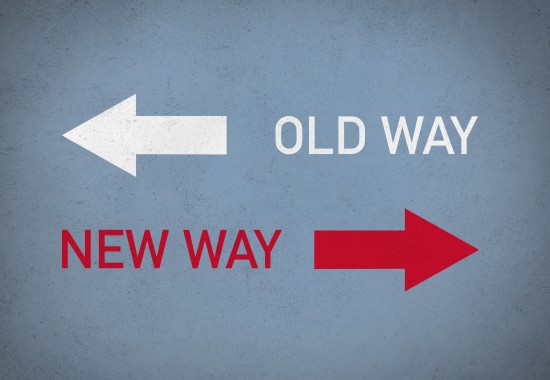Research
How Do Risk Perception and Past Experience Shape Innovation and the Future Business Model?
Business model innovation – which, in addition to product innovation, also includes innovative sales channels, new payment models, etc. – has a strong impact on corporate success, according to recent studies. Nevertheless, there is evidence that management often shies away from it. The reason for this may be, among other things, the previous experience of the managers.

The literature on this topic is ambiguous. Some researchers argue that companies are more risk-averse when faced with external threats and stick to the established (threat rigidity). Other work shows that companies tend to be more risk-averse when faced with potential losses because they generally have less to lose. However, it is not only the perception of a current event that influences decisions but also previous experience. For example, decision-makers are shown to be more risk-seeking if they have realized profits in the past. If losses were realized in the past, decision-makers become more risk-averse.
Threat Over Opportunity, Past Over Future?
To investigate their risk-taking behavior, NIM conducted an experimental study with top managers from large companies and with individuals without professional management responsibility in large companies. In a hypothetical scenario, the research team experimentally varied both past company performance (past gains vs. past losses) and the current event (opportunity with potential gains vs. threat with potential losses). Participants were then asked whether the business model should be innovated given the scenario (which meant potentially higher profits with some risk) or not (the safe option with lower profits).
Does Top Management see the World Through Different Eyes?
Regardless of the company’s past performance, individuals without professional management responsibility in large companies showed a clear preference for the riskier option, i.e., innovation. This was slightly amplifi ed when they were confronted with a threatening event. Top managers, on the other hand, showed significantly different risk behavior in the study: When faced with market threats, they are more risk-averse and more likely to stick to the current business model. If they had suffered losses in the past, they were even less willing to innovate.
Key Findings
When facing market threats, top managers tend toward the status quo and less toward innovation and, thus, are risk-averse when faced with imminent losses.
The average population, in contrast, tends to be risk-seeking in the face of imminent losses.
Top managers are more present-oriented than the average population.
Project team
- Dr. Matthias Unfried, Head of Behavioral Science, NIM, matthias.unfried@nim.org
- Dr. Michael K. Zürn, Senior Researcher, NIM, michael.zuern@nim.org
Contact
